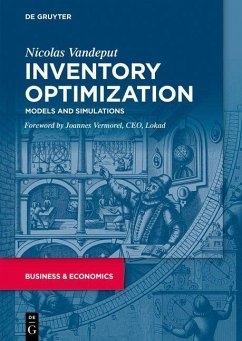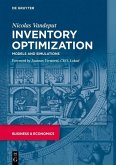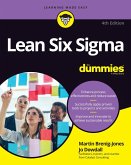--Joannes Vermorel, CEO, Lokad
Inventory Optimization argues that mathematical inventory models can only take us so far with supply chain management. In order to optimize inventory policies, we have to use probabilistic simulations. The book explains how to implement these models and simulations step-by-step, starting from simple deterministic ones to complex multi-echelon optimization.
The first two parts of the book discuss classical mathematical models, their limitations and assumptions, and a quick but effective introduction to Python is provided. Part 3 contains more advanced models that will allow you to optimize your profits, estimate your lost sales and use advanced demand distributions. It also provides an explanation of how you can optimize a multi-echelon supply chain based on a simple-yet powerful-framework. Part 4 discusses inventory optimization thanks to simulations under custom discrete demand probability functions.
Inventory managers, demand planners and academics interested in gaining cost-effective solutions will benefit from the "do-it-yourself" examples and Python programs included in each chapter.
Events around the book
Link to a De Gruyter Online Event in which the author Nicolas Vandeput together with Stefan de Kok, supply chain innovator and CEO of Wahupa; Koen Cobbaert, Director in the S&O Industry practice of PwC Belgium; Bram Desmet, professor of operations & supply chain at the Vlerick Business School in Ghent; and Karl-Eric Devaux, Planning Consultant, Hatmill, discuss about models for inventory optimization. The event will be moderated by Eric Wilson, Director of Thought Leadership for Institute of Business Forecasting (IBF): https://youtu.be/565fDQMJEEg
Dieser Download kann aus rechtlichen Gründen nur mit Rechnungsadresse in A, B, BG, CY, CZ, D, DK, EW, E, FIN, F, GR, HR, H, IRL, I, LT, L, LR, M, NL, PL, P, R, S, SLO, SK ausgeliefert werden.









